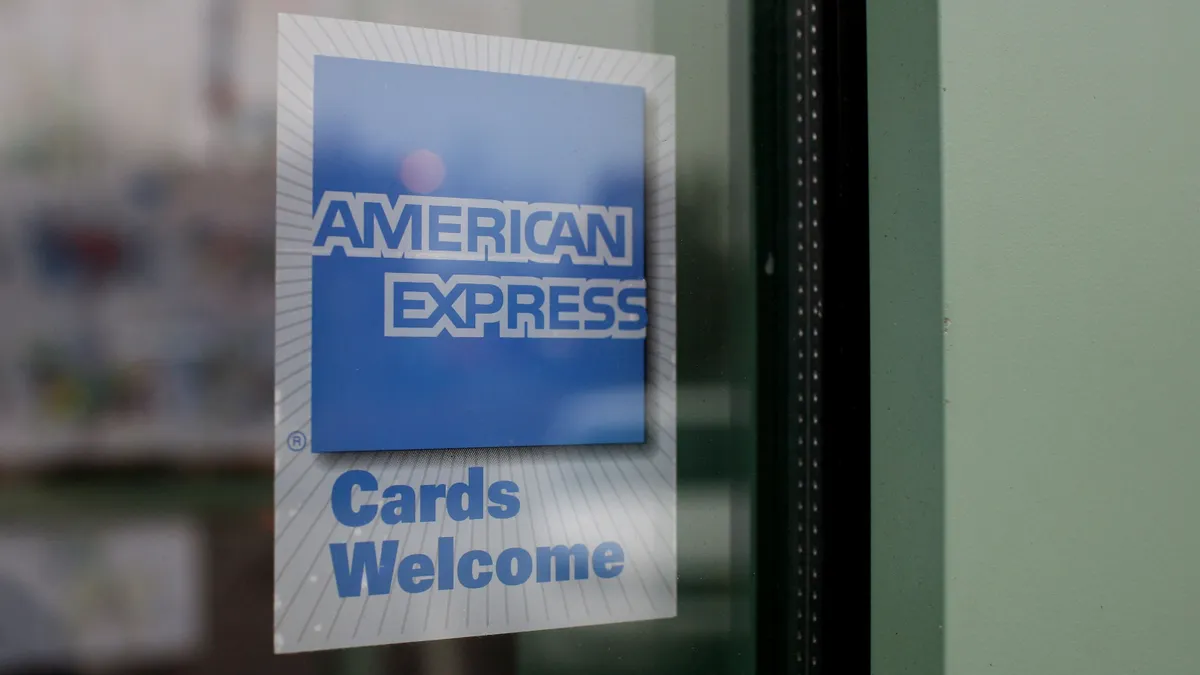American Express agreed to pay $230 million to settle Justice Department charges that it engaged in deceptive marketing and deficient recordkeeping in pitching its credit cards to small businesses.
The Justice Department alleged the New York City-based card company entered “dummy” account information on behalf of businesses applying for credit cards, undercutting required recordkeeping, according to a news release posted on DOJ’s website Thursday.
American Express employees also misrepresented the rewards and fees attached to those cards, and were not upfront about whether credit checks would be conducted without a customer's consent, the release said.
The company also touted tax breaks that didn’t exist when it marketed a wire product that let business owners pay their payroll directly from an Amex account, the U.S. Attorney’s Office for the Eastern District of New York said in a separate news release. American Express deceitfully told customers that fees on the wire service were tax deductible, the release said.
“When financial companies engage in deceptive sales tactics or falsify information to cover up a failure to follow applicable regulations, they threaten the integrity of our financial system,” Principal Deputy Assistant Attorney General Brian M. Boynton said in the news release.
Amex acknowledged the settlements in its own press release Thursday and said it had ended the practices years ago. “We cooperated extensively with these agencies and our regulators and took decisive voluntary action to address these issues,” the statement said.
The credit card behemoth engaged in these deceptive credit card practices from 2014 through 2021, the DOJ alleged. The company fired 200 employees after an internal investigation, the New York U.S. Attorney’s Office said in its release.
Under the DOJ civil penalty settlement, Amex agreed to pay $108.7 million, plus 4% annual interest. Separately, Amex entered into a nonprosecution agreement with the U.S. Attorney’s Office for the Eastern District of New York and agreed to pay a criminal fine and forfeiture that total $138.4 million, according to the district’s office.
American Express will receive a credit of $30.35 million toward the civil penalty if it makes full payment of the forfeiture and fine amounts due under the criminal resolution.
Amex cooperated with the Justice Department to address the allegations by updating its policies, discontinuing certain products, conducting an internal review and taking disciplinary actions, American Express said in its release, which was also submitted as part of a regulatory filing.
The company also noted it had reached an agreement with the Federal Reserve — to be finalized in the coming weeks” — regarding past sales practices related to U.S. small-business clients.
In response to a message seeking more details on its corrective measures, an Amex spokesperson referred back to the company’s statement and the regulatory filing.
Some of the problematic Amex practices outlined in the DOJ release included overstating a business's income and entering a false employer identification number EIN when credit card applications were accepted.
An EIN is required by law if the card applicant is a corporation or a business partnership. Amex employees sometimes used so-called "dummy" EINs such as "123456788," according to the DOJ news release. The company took up to two years to correct those false identifiers, the department said. The cards with "dummy" numbers were sold when the company was replacing co-branded credit cards that were discontinued in 2015 and 2016, DOJ said.
In some cases, businesses that applied for these credit cards left the line for the EIN blank on their application and Amex assumed the business owner was a sole proprietor, the release said. "That practice exacerbated the effects of American Express's failure to enter proper EINs when it sold these customers replacement cards," the release said.















